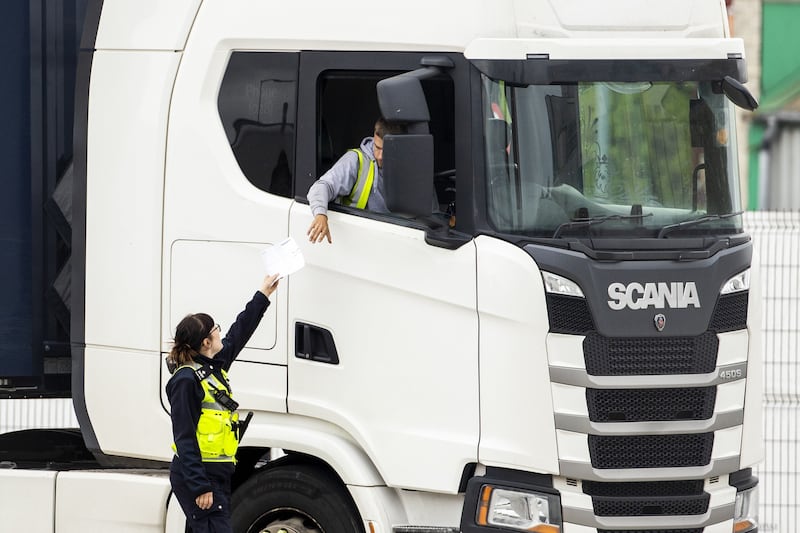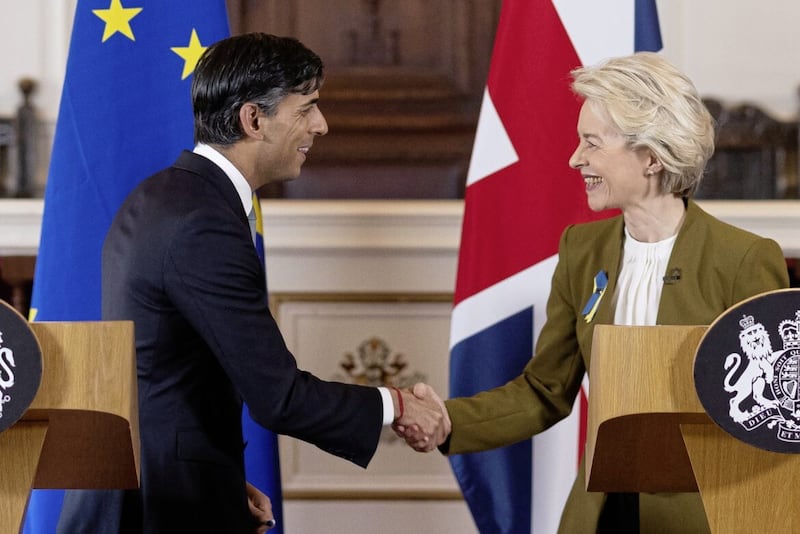A hardening of the land border between NI and the Republic (which had also become the land border between the EU and UK in June 2016) might, as Leo Varadkar suggested to a meeting of EU leaders in October 2018, risk the return of violence.
He didn’t threaten violence, merely pointed out that no one should underestimate the possibility of its return.
Brian Feeney: The north has always been an artificial construct, a place apart from Britain
Yet even if the EU and UK had reached an agreement which necessitated a ‘live’ border with customs posts, but which wasn’t accompanied by a new round of border terrorism, it would still have altered the north-south constitutional dynamics – as any new, manned frontier border was bound to do.
'New' border ruled out
The UK and Irish governments, along with the EU, clearly accepted the difficulties which might flow from a ‘new’ border and ruled that option out. Fair enough. Indeed, I had some sympathy with the case being made against it. Messing about with borders – including one which could be defined as dormant – along with constitutional dynamics and the intricacies of identity will, almost always, lead to difficulties if not handled with great care.
Read more:
Alex Kane: DUP is running out of time to decide
So, Brian, it struck me as extraordinary that both governments and the EU gave their joint imprimatur to the creation of an entirely new arrangement which placed NI in what might be best understood as a bespoke limbo: neither fully in the UK, nor properly in the EU. And then, having done that, jointly insisted that this didn’t represent a constitutional threat to NI’s position within the UK or unionists’ sense of identity as full citizens of the UK.

Let’s be honest about this: if nationalists believed that the ramping up of an existing border would represent a threat to their identity and their constitutional ambitions, why would they even begin to imagine that a deal which changed the nature of the relationship between NI and GB would be acceptable to unionists?
And maybe it’s worth remembering that not a single unionist party, or representative at Westminster, assembly or council level, supports the protocol or framework. This isn’t just about the DUP.
Is Northern Ireland 'a place apart'?
There is a tendency in some quarters to suggest that unionists should stop complaining, because NI ‘has always been a place apart'.

I take the point, Brian, but both the NI Parliament (1921-72) and the GFA (1998–present) were and are bespoke arrangements. Yes, in terms of governance and then the ‘mandatory’ aspects introduced in March 1973, NI has been a place apart: but it has always been a place apart within the UK. That is no longer the case.
There has also been a tendency to accuse unionists of bringing the problems upon themselves: “You voted for Brexit and the DUP always wanted the hardest form of it.” Well, 40% of unionists voted Remain.
Even if all of unionism had voted Remain and Brexit had still carried the day, it would still have had a problem with the fallout from the civil war within the Conservative Party and the rise of a new English nationalism which doesn’t give a toss about the Celtic fringes.

I believed a bespoke deal (like the GFA and St Andrews agreement) was possible. It was certainly hinted at by Martin McGuinness and Arlene Foster in a joint letter to Theresa May in August 2016. But the prospect of that went belly-up in January 2017 when SF collapsed the assembly; and the DUP later cut a confidence and supply arrangement with May’s government and climbed into bed with the ERG.
Unionism's position weakened and altered
Perception is a key factor in politics, Brian. What people believe is true often trumps what might be true. Varadkar recognised that in October 2018.
The dominant perception across political/electoral unionism is that the protocol/framework has undermined its constitutional position. It has certainly weakened and altered it because NI is no longer fully in the UK.
Something very significant has happened to the terms and conditions of my citizenship: and it concerns me greatly.








